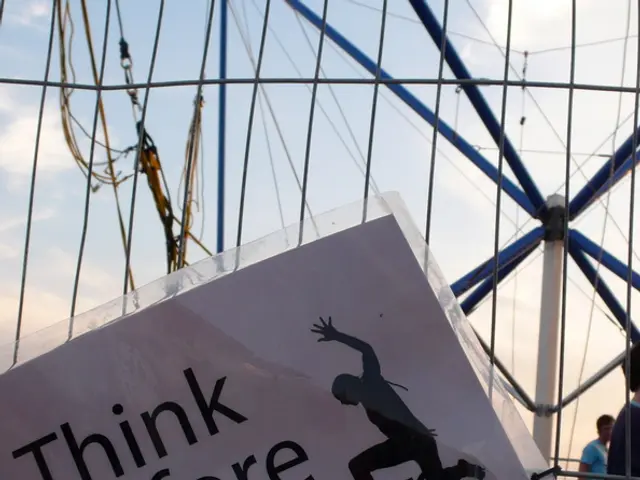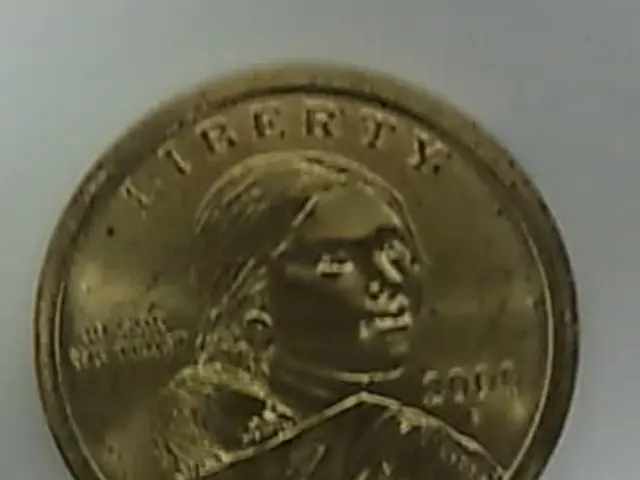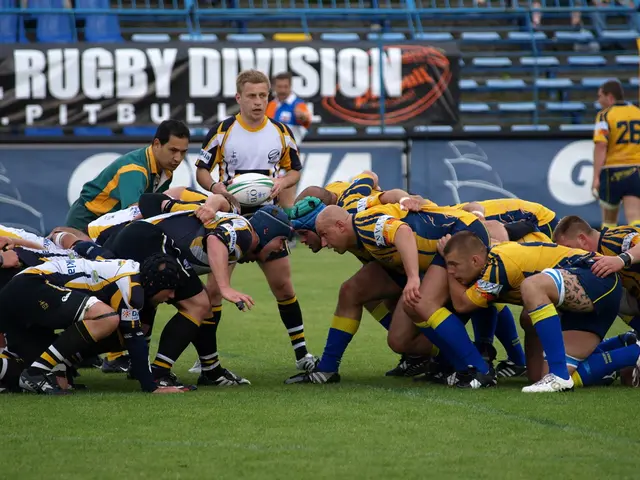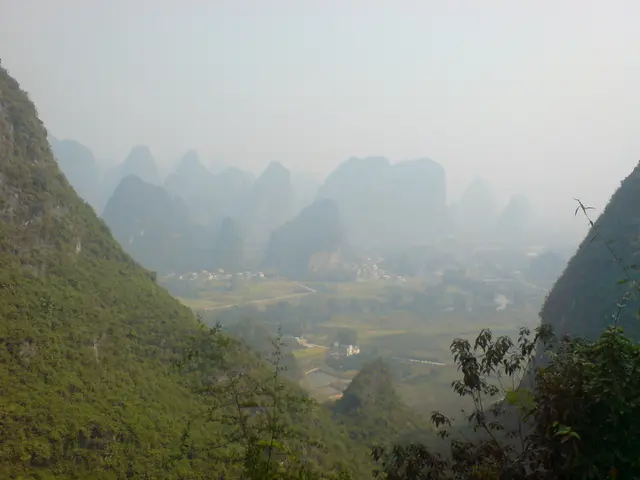Dispute over warrant necessity in Mahmoud Khalil's arrest: Court records disclose conflicting views between Khalil's legal team and DOJ.
Fresh Take:
In a dramatic turn of events, Mahmoud Khalil, a graduate of Columbia University, found himself in the grip of federal agents who snatched him without an arrest warrant, as per court documents filed last Thursday. The DOJ maintains that agents believed Khalil was likely to bolt before they could secure a warrant due to his supposed non-cooperation, a claim aggressively disputed by Khalil's lawyers who argue that video evidence proves their client had no intention of fleeing or defying the agents.
The hornet's nest centered around the alleged offense of Khalil not having his "evidence of registration" document, a.k.a. a green card, on hand. According to US law, lawful permanent residents aged 18 and above are required to carry this document at all times. An agent from Homeland Security Investigations approached Khalil outside his apartment and, upon requesting identification, he presented a foreign driver's license instead.
The agent, evidently showing leniency, permitted Khalil's wife to fetch the green card from their apartment, despite the violation being classified as a misdemeanor. While waiting for his wife, Khalil allegedly expressed his unwillingness to cooperate with the agents and intended to leave the scene, which the agent saw as a flight risk necessitating an arrest.
Khalil's lawyers, however, refute these claims by presenting video footage of the arrest that illustrates Khalil did not resist or attempt to escape as the agents put him in handcuffs. The Trump administration's move to nab Khalil has drawn stern criticism from the New York Civil Liberties Union, who allege this is yet another example of the administration's relentless efforts to suppress freedom of speech, especially in relation to Palestinian rights.
In a statement, Veronica Salama, staff attorney at the New York Civil Liberties Union, accused the administration of employing smear tactics to justify Khalil's unwarranted detention. "We have the receipts: Mr. Khalil was taken from his family with no warrant and in clear retaliation for his protected speech," Salama said, adding, "We will continue to fight for Mr. Khalil's freedom and defend the right to speak freely about Palestinian rights without fear of detention and deportation."
The DOJ's submissions to a New Jersey court this week sparked a heated exchange between the two sides, with both parties squabbling over the necessity of an arrest warrant for Khalil, a legal permanent resident. The legality of Khalil's detention holds the key to the case unfolding in New Jersey, with his lawyers petitioning the court for his release.
Khalil, who played a significant role in organizing protests against the Israel-Hamas war on the Columbia campus last year, has been incarcerated in Louisiana since March. In proceedings earlier this month, Louisiana Assistant Chief Immigration Judge Jamee Comans decided Khalil should be deported after the government submitted evidence supporting removal. This evidence consisted of a two-page memo from Secretary of State Marco Rubio stating Khalil's pro-Palestinian activism posed a threat to US foreign policy interests.
It's worth noting that both courts – the Louisiana immigration court and the New Jersey federal court – are swirling around two distinct cases involving Khalil. The Louisiana case centers on his deportation, while the New Jersey case focuses on the legality of his detention and the pursuit of his release on bail.
Khalil's lawyers contend that the arrest without a warrant rendered the subsequent detention procedurally invalid, and are arguing for the termination of his deportation case in Louisiana based on this claim. The inconsistency and contradiction in statements made by the Trump administration regarding the arrest have undermined the government's credibility, according to Khalil's legal team.
Khalil has also applied for asylum, the details of which remain sealed due to their sensitive nature. It's unclear at this point exactly why Judge Michael Farbiarz, presiding over the New Jersey district court, requested evidence presented in the Louisiana immigration case. However, Farbiarz is currently weighing multiple motions, including a motion to release Khalil on bail and a motion seeking a preliminary injunction that would block his continued detention and potentially halt the Trump administration's targeting of other noncitizens who have engaged in protest activity.
- Khalil's lawyers argue that the restless realm of political debate, particularly concerning Palestinian rights, has become a hotbed for smear tactics after Khalil, a legal permanent resident, was alleged to have been unjustly detained without an arrest warrant, following his activism against the Israel-Hamas war.
- The dispute over the necessity of an arrest warrant for Khalil has become a controversial topic in both the Louisiana immigration court and the New Jersey federal court, with each case focusing respectively on his deportation and the legality of his detention, and his legal team asserting that the inconsistency and contradiction in the Trump administration's justifications for Khalil's arrest call into question their credibility.
- Although the details of Khalil's asylum application are confidential, the New York Civil Liberties Union and Khalil's lawyers claim that the administration's actions are an attack on the freedom of speech, and that Khalil was targeted due to his noncitizen status and his participation in general-news and crime-and-justice related activities such as surveying and expressing political opinions.
- The Trump administration has accused Khalil of arrest-worthy offenses, including not carrying his "evidence of registration" document (a.k.a. a green card), and his supposed unwillingness to cooperate with the authorities, creating a complicated legal scenario involving charges of a misdemeanor, a supposition of flight risk, and questions regarding the constitutionality of Khalil's arrest and detention.








